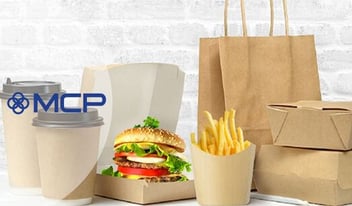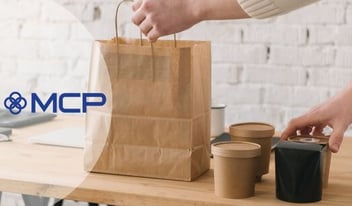
When food manufacturers choose the packaging materials for their products, they consider multiple important roles that packaging must perform. Packaging influences how attractive a product is to consumers, the quality of the food over time, and..
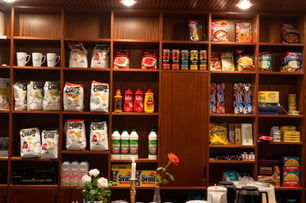 When food manufacturers choose the packaging materials for their products, they consider multiple important roles that packaging must perform.
When food manufacturers choose the packaging materials for their products, they consider multiple important roles that packaging must perform.
Packaging influences how attractive a product is to consumers, the quality of the food over time, and food safety. Food is often presented to consumers in some form of coated paper, paperboard, or cardboard packaging. Specially engineered coatings add an attractive and functional layer that provides excellent moisture, liquid, and grease resistance, for example, while improving the shelf life and preserving the quality of the food sealed inside.
Like all food packaging, the coatings and adhesives applied to paper to be used to package or serve food must meet safety standards set by the Food and Drug Administration (FDA). This blog will examine the FDA regulations and programs most relevant for food manufacturers using paper packaging with barrier coatings and how chemists at Mallard Creek Polymers (MCP) help food packaging manufacturers by creating polymers with specific barrier properties that meet FDA requirements.
Creating FDA-Compliant Food Contact Materials
FDA compliance for food contact materials requires materials to be:
- Created from approved raw materials, which are listed in the Code of Federal Regulations.
Or:
- Created from materials approved through the Food Contact Notification system, described below.
In addition, a material or packaging application can be found to be exempt from food contact regulations if it meets certain criteria. If a coating substance is reasonably expected to migrate to food at detectable levels under the intended conditions of use, it is considered a potential component of food and is subject to food contact regulations. However, if a physical barrier blocks this type of migration, a material can be exempted from the regulations. The FDA will also exempt any substance that has been specifically cleared through a prior sanction or meets the criteria for Generally Recognized as Safe.
Unlike the way it approves new drugs or vaccines, the FDA does not approve specific adhesives and coatings for direct or indirect food contact applications. Rather, the company producing these products, like MCP, verifies that they are compliant with FDA regulations for use under specific conditions. Each raw material used to produce the coating must carry the appropriate FDA status for the proposed use. MCP establishes compliance based on the complete composition of the coating and the intended conditions of use. Tests are required to ensure product safety.
Before discussing the relevant FDA regulations, it is helpful to understand the following key terms:
- A food contact substance (FCS) is defined by the FDA as “any substance that is intended for use as a component of materials used in the manufacturing, packing, packaging, transporting, or holding food if such use of the substance is not intended to have any technical effect in such food.” An FCS is considered a single substance, such as a polymer, even though a polymer may be composed of several monomers. Other FCSs include adhesives and components of coating, paper and paperboard components and adjuvants and production aids.
- A food contact material (FCM) is something made with the FCS and possibly other substances. It is often a mixture. The composition may be variable.
- A food contact article is the finished product that is made from the FCM.
- A direct food additive is an ingredient in food.
- A secondary direct food additive is something added to food during processing but later removed.
- The Food Contact Notification (FCN) system is an FDA program, in operation since 2000, that allows manufacturers of food contact materials to submit an application (the FCN) to the agency, detailing the chemical makeup and intended use of a new food contact substance and evidence to support its safety for the intended use. If approved, this gives the manufacturer and its customers, but not others, permission to use the substance.
The Food Contact Materials Regulation Landscape
The most relevant FDA regulations for barrier coatings applied to paper are written in the Code of Federal Regulations (CFR) and are found in Title 21, in the following sections:
- Section 175, Indirect Food Additives: Adhesives and Components of Coatings
- Section 176, Indirect Food Additives: Paper and Paperboard Components
In addition to FDA regulations, individual states may also set regulations for food packaging. Keep in mind that regulations are regularly amended so the landscape is frequently changing.
These regulations list the approved raw materials that can be used as components in products and applications that may have direct or indirect food contact. The regulations set specific migration limits that quantify the maximum allowed amount of a specific substance that can migrate from a food contact material into the food itself. Researchers use toxicology studies to determine safety limits.
Adhesives in Food Packaging
Because adhesives are considered indirect food additives, this section of regulations applies physical limitations, or “functional barriers,” to the use of adhesive formulations to prevent the migration of packaging adhesives to food.
175.105(c) lists the specific substances that may be used in adhesive formulations and the allowed conditions of use. Per 175.105(a)(2), food packaging manufacturers must make sure that a functional barrier separates the food from the adhesive or that both of the following are true:
- The quantity of adhesive contacting packaged dry food does not exceed the limits of good manufacturing practices (GMP) and
- The quantity of adhesive contacting aqueous and fatty foods does not exceed trace amounts at the seams and edges of packaging laminates that may occur within the limits of GMPs.
A physical barrier prevents substances from becoming components of food. Therefore, with a functional barrier in place between the adhesive formulation and the food, material that is not explicitly listed as allowed in 175.105 can still be used if appropriate studies show that it is not expected to migrate to the food.
Indirect Food Additives: Paper and Paperboard Components
These regulations pertain to additives used on food contact paper that are reasonably expected to become components of food and therefore must meet FDA requirements. The regulations list substances that may be used in food contact paper and the conditions of use. The section is divided by food type into:
- Components of paper and paperboard in contact with aqueous and fatty foods
- Components of paper and paperboard in contact with dry food
Resinous and Polymeric Coatings
This section lists the precursor materials used in coatings because they are typically very complex and lack a clearly defined chemical composition.
Some regulations allow substances to be used that meet the Generally Recognized as Safe (GRAS) criteria, have been previously evaluated and sanctioned, or are the subject of another food additive regulation. This is known as cross-referencing. The substance, when used in coating applications, must comply with the specifications and limitations listed in the cross-referenced regulation. For example, if a coating is cleared only for metal substrates, it can’t be cross-referenced to be used in a coating for paper or cardboard.
How Can MCP Help Ensure Your Packaging is FDA-Compliant?
Food manufacturers depend on FDA-compliant packaging to make sure their products remain safe from production to consumption. By creating products in compliance with FDA food contact regulations, MCP removes the regulatory burden from its customers, who can then save time and money with an efficient manufacturing process. Our Rovene 4100 can be used in adhesive and paper coating applications requiring FDA compliance. In addition, MCP recently launched the Tykote 6161 polymer, an all-acrylic water-based emulsion that offers excellent oil and grease resistance and water resistance and can be used in direct food contact applications. It was developed to meet FDA regulations without restrictions on food types or conditions of use.
MCP chemists are experienced and knowledgeable in creating custom polymers that comply with FDA regulations and meet manufacturers’ demands for specific barrier properties. Contact us to learn how MCP can work with you to create an application or product to meet your needs.
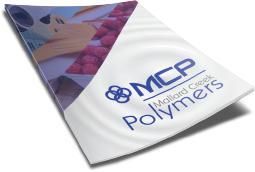
 Construction
Construction
 Nonwovens
Nonwovens
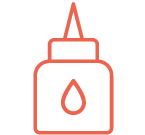 Adhesives
Adhesives
 Textiles
Textiles
 Printing & Packaging
Printing & Packaging
 Paper
Paper
 Paints & Coatings
Paints & Coatings



